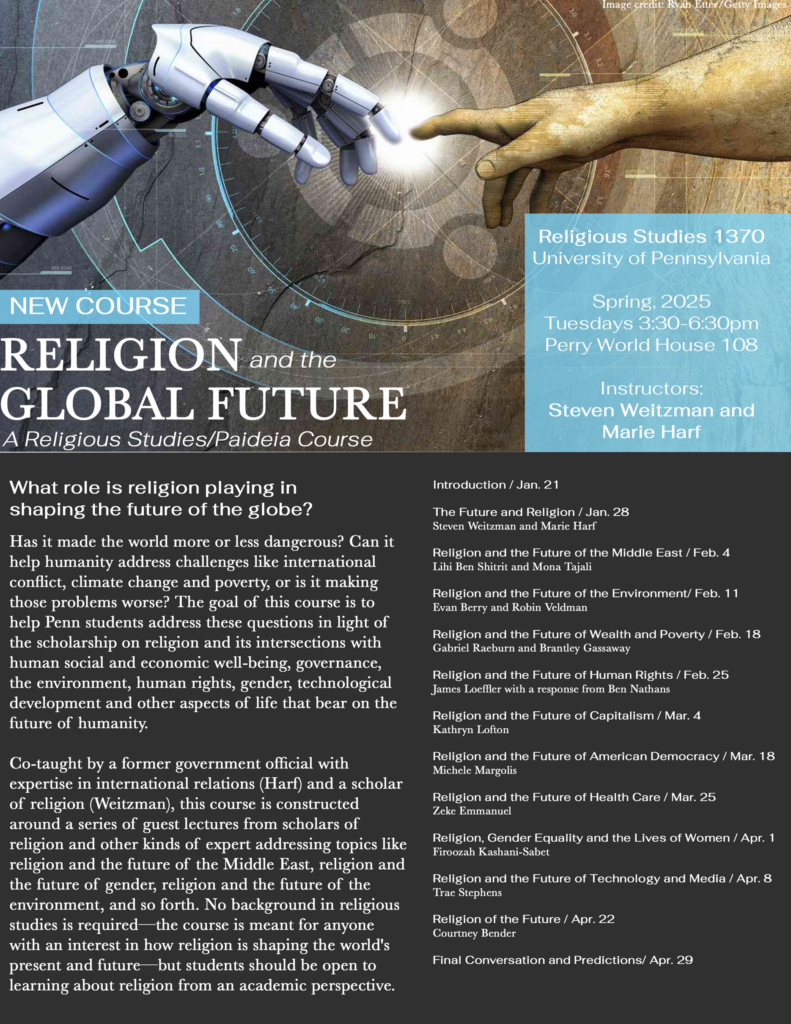the boundaries between academia, government, business, activism, and personal belief.

the boundaries between academia, government, business, activism, and personal belief.

Spring 2026
Spring 2026
Faith, belief, spirituality and religious identity are central to the lives of so many people, and so building understanding about these aspects of life – encompassing the development of our personal convictions as well as our connections to (or challenges with) institutional religion and spiritual community – is essential to understanding our world. But conversations on these topics can be complicated, confusing, even contentious. The Interfaith Dialogue in Action course makes space for students of all religious and non-religious backgrounds to engage with one another, reflect together, and learn skills to build dialogue between people with different faith traditions, worldviews, practices, and beliefs.